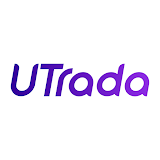Scam Forex Brokers: Exposing Fraudulent Trading Platforms
The forex market attracts millions of traders, but unfortunately, it also attracts scammers looking to exploit unsuspecting investors. This page reveals scam forex brokers, their fraudulent tactics, and how to identify and avoid them. Learn about fake trading platforms, withdrawal scams, Ponzi schemes, and regulatory violations that can lead to financial losses. Stay informed and trade safely with our expert insights, verified broker reviews, and scam alerts.
Avoid Forex Scams & Protect Your Investments :

- No Regulated - CySEC, FCA, FSCA, FSA (Seychelles), CBCS, FSA (BVI), FSA (Mauritius), CMA (Kenya), JSC (Jordan)
- Meta trader 5 License- No
- No Safe Payment options - Bank cards (Visa, Mastercard, Maestro), Bank wire transfers, Perfect Money, Skrill, Neteller
- No certificates of registration of legal entities.
- Risk Disclosure: Don't Waste Money With No Regulated Borker
- Trusted Broker: NO
- Minimum Deposit:
- Mobile App: No
How to Identify a Scam Forex Broker: A Trader’s Guide
The forex market offers countless opportunities, but it’s also a hotspot for scammers looking to exploit traders. Many fraudulent brokers operate under fake licenses, manipulate trades, and make withdrawals nearly impossible. If you want to protect your hard-earned money, knowing how to identify a scam forex broker is crucial.
In this guide, we’ll cover the key warning signs of a scam broker, red flags to watch for, and tips on choosing a legitimate forex broker.
1. No Regulatory License or Fake Regulation
Legitimate forex brokers are regulated by financial authorities such as:
✅ U.S.: Commodity Futures Trading Commission (CFTC) & National Futures Association (NFA)
✅ UK: Financial Conduct Authority (FCA)
✅ Europe: Cyprus Securities and Exchange Commission (CySEC)
✅ Australia: Australian Securities and Investments Commission (ASIC)
🚨 Red Flag: If a broker doesn’t display a valid license or claims to be regulated by an unknown or fake authority, it’s likely a scam.
💡 How to Check:
- Visit the regulator’s official website and search for the broker’s name.
- Cross-check the license number with the regulator’s records.
2. Unrealistic Profit Promises
Scam brokers often lure traders by advertising guaranteed profits or high returns with no risk.
🚨 Red Flag:
- Claims like “Earn $10,000 in a week with zero risk!”
- Promises of 100% win rates or automated systems that never lose.
💡 Reality Check:
Forex trading is risky, and no broker can guarantee profits. Any platform making such promises is likely a scam.
3. Withdrawal Issues & Hidden Fees
One of the biggest complaints against scam brokers is withdrawal problems. They delay or block withdrawals, citing fake reasons.
🚨 Red Flag:
- You must pay a fee before withdrawing your own money.
- Brokers keep making excuses like “verification pending” or “market conditions prevent withdrawal.”
- Sudden additional fees or account freezing after profits are made.
💡 How to Avoid This:
- Choose brokers regulated by top-tier authorities that protect your funds.
- Read real customer reviews on sites like Trustpilot, Forex Peace Army, and Reddit.
4. Lack of Transparency in Trading Conditions
Scam brokers manipulate their platforms to rig trades, widen spreads, and delay executions to cause losses.
🚨 Red Flag:
- No clear information about spreads, commissions, or leverage.
- Frequent “slippage” (price changes when placing a trade).
- Orders being rejected or manipulated to make you lose.
💡 How to Avoid This:
- Trade with well-known, regulated brokers with a good reputation.
- Open a demo account before depositing real money.
5. High-Pressure Sales Tactics
Scam brokers manipulate their platforms to rig trades, widen spreads, and delay executions to cause losses.
🚨 Red Flag:
- No clear information about spreads, commissions, or leverage.
- Frequent “slippage” (price changes when placing a trade).
- Orders being rejected or manipulated to make you lose.
💡 How to Avoid This:
- Trade with well-known, regulated brokers with a good reputation.
- Open a demo account before depositing real money.
6. Fake Positive Reviews & Paid Testimonials
Many scam brokers pay for fake reviews to appear legitimate.
🚨 Red Flag:
- Reviews sound too positive and unnatural.
- A flood of 5-star reviews in a short time, often with generic comments.
- No detailed information about customer service, withdrawal process, or trading experience.
💡 How to Spot Fake Reviews:
- Look for reviews on independent websites like Forex Peace Army or Trustpilot.
- Compare reviews across different platforms to find consistent complaints.
7. Unregistered or Offshore Address
Scam brokers often operate from unregulated offshore locations where legal action is difficult.
🚨 Red Flag:
- The broker is registered in Seychelles, Saint Vincent and the Grenadines, or Belize without strict regulations.
- No clear company address or phone number.
💡 What to Do:
- Avoid brokers based in offshore tax havens unless they are also licensed by a top-tier regulator (FCA, ASIC, CFTC, etc.).
- Look for brokers with transparent headquarters and legal backing.
Conclusion: Protect Yourself from Forex Scams
Scam forex brokers prey on traders who don’t do their research. Before depositing money, always:
✅ Verify the broker’s regulatory license.
✅ Read real reviews from traders.
✅ Check for withdrawal issues and hidden fees.
✅ Avoid brokers that guarantee profits or use high-pressure tactics.
🔍 Best Practice: Use trusted, well-regulated brokers to ensure a safe trading experience. If you’ve been scammed, report the broker to financial regulators and warn others by leaving honest reviews.
💬 Have you encountered a scam broker before? Share your experience in the comments below!